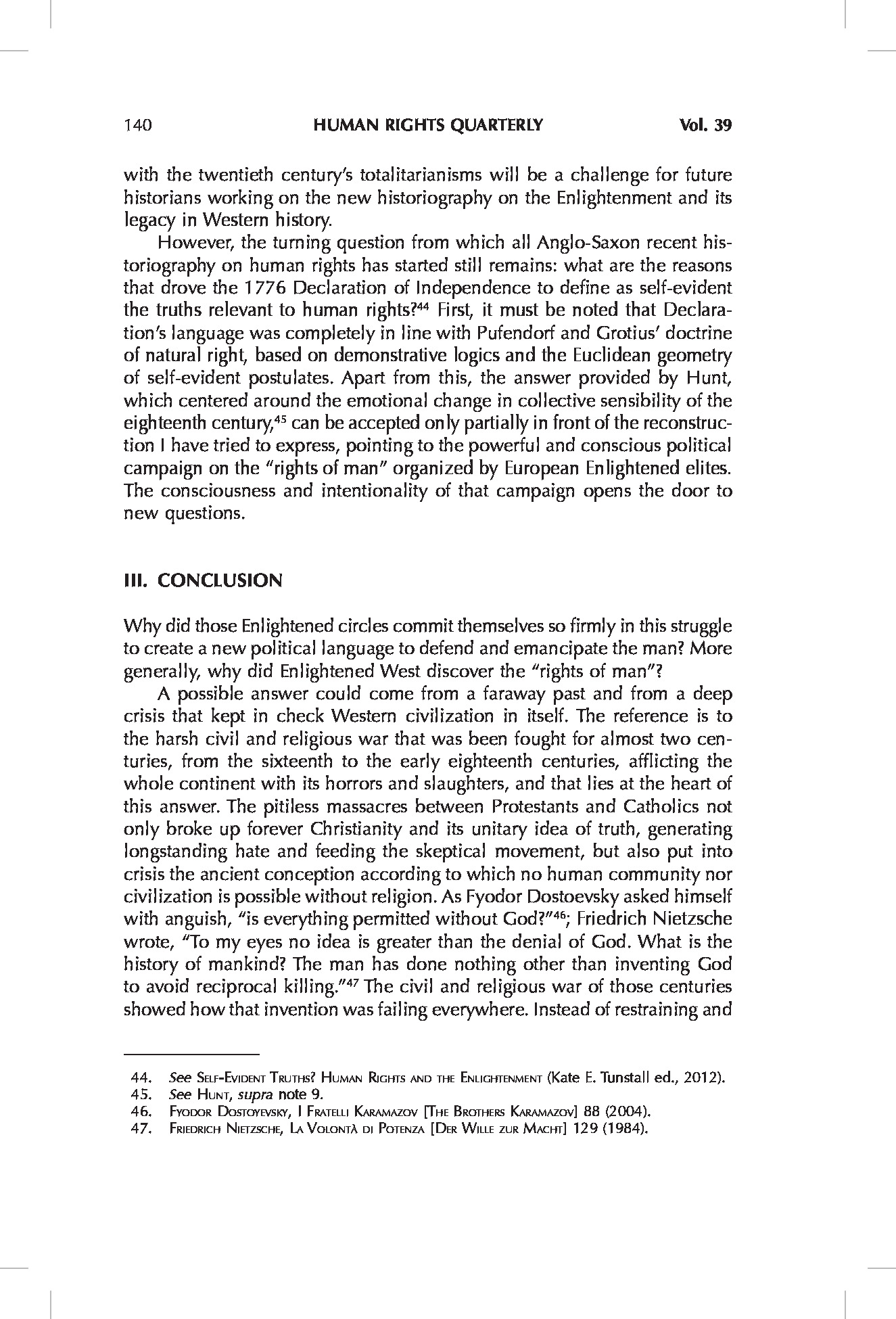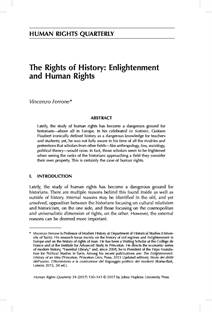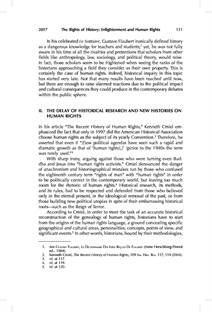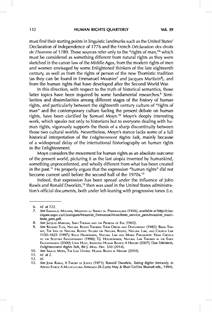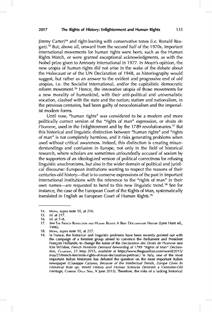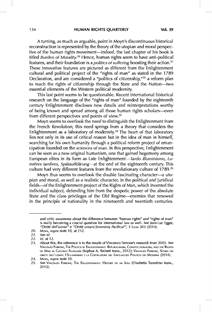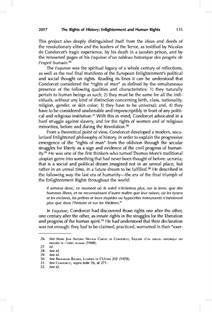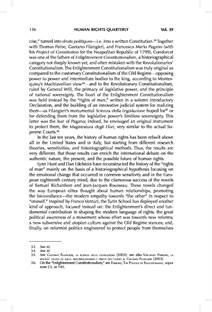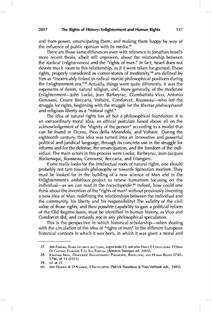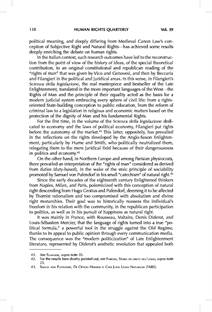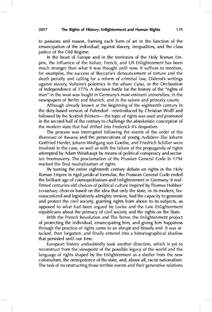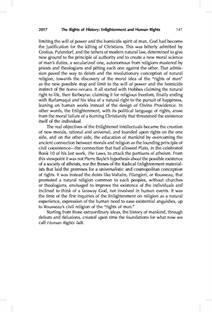Vol. 39
140
HUMAN RIGHTS QUARTERLY
with the twentieth century’s totalitarianisms will be a challenge for future
historians working on the new historiography on the Enlightenment and its
legacy in Western history.
However, the turning question from which all Anglo-Saxon recent his-
toriography on human rights has started still remains: what are the reasons
that drove the 1776 Declaration of Independence to define as self-evident
the truths relevant to human rights?
First, it must be noted that Declara-
tion’s language was completely in line with Pufendorf and Grotius’ doctrine
of natural right, based on demonstrative logics and the Euclidean geometry
of self-evident postulates. Apart from this, the answer provided by Hunt,
which centered around the emotional change in collective sensibility of the
45
eighteenth century, can be accepted only partially in front of the reconstruc-
tion I have tried to express, pointing to the powerful and conscious political
campaign on the “rights of man” organized by European Enlightened elites.
The consciousness and intentionality of that campaign opens the door to
new questions.
44
III. CONCLUSION
Why did those Enlightened circles commit themselves so firmly in this struggle
to create a new political language to defend and emancipate the man? More
generally, why did Enlightened West discover the “rights of man”?
A possible answer could come from a faraway past and from a deep
crisis that kept in check Western civilization in itself. The reference is to
the harsh civil and religious war that was been fought for almost two cen-
turies, from the sixteenth to the early eighteenth centuries, afflicting the
whole continent with its horrors and slaughters, and that lies at the heart of
this answer. The pitiless massacres between Protestants and Catholics not
only broke up forever Christianity and its unitary idea of truth, generating
longstanding hate and feeding the skeptical movement, but also put into
crisis the ancient conception according to which no human community nor
civilization is possible without religion. As Fyodor Dostoevsky asked himself
46
with anguish, “is everything permitted without God?” ; Friedrich Nietzsche
wrote, “To my eyes no idea is greater than the denial of God. What is the
history of mankind? The man has done nothing other than inventing God
47
to avoid reciprocal killing.” The civil and religious war of those centuries
showed how that invention was failing everywhere. Instead of restraining and
44. See selF-eviDent trutHs? Human riGHts anD tHe enliGHtenment (Kate E. Tunstall ed., 2012).
45. See Hunt, supra note 9.
46. FyoDor Dostoyevsky, i Fratelli karamazov [tHe brotHers karamazov] 88 (2004).
47. FrieDricH nietzscHe, la volontà Di Potenza [Der wille zur macHt] 129 (1984).
Dettagli
- Page N°:11
- Publication:
- Author:Vincenzo Ferrone

